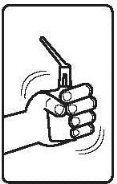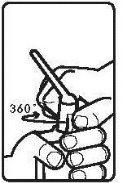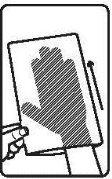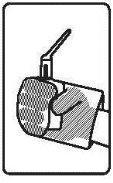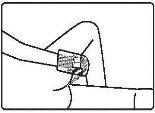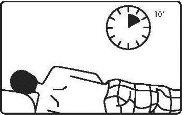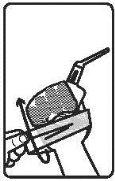
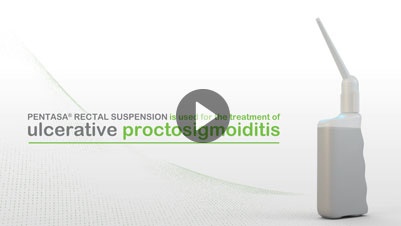
PENTASA 4 g SUSPENSÃO RETAL

Pergunte a um médico sobre a prescrição de PENTASA 4 g SUSPENSÃO RETAL

Como usar PENTASA 4 g SUSPENSÃO RETAL
Introdução
Prospecto: informação para o utilizador
Pentasa 4 g suspensão retal
Mesalazina
Leia todo o prospecto detenidamente antes de começar a usar este medicamento,porque contém informações importantes para si.
- Conserva este prospecto, porque pode ter que voltar a lê-lo.
- Se tiver alguma dúvida, consulte o seu médico ou farmacêutico.
- Este medicamento foi prescrito apenas para si e não deve ser dado a outras pessoas, mesmo que apresentem os mesmos sintomas de doença que si, porque pode prejudicá-las.
- Se experimentar efeitos adversos, consulte o seu médico ou farmacêutico, mesmo que se trate de efeitos adversos que não aparecem neste prospecto. Ver seção 4.
Conteúdo do prospecto:
- O que é Pentasa suspensão retal e para que é utilizado
- O que necessita saber antes de começar a usar Pentasa suspensão retal
- Como usar Pentasa suspensão retal
- Posíveis efeitos adversos
- Conservação de Pentasa suspensão retal
- Conteúdo do envase e informação adicional
1. O que é Pentasa suspensão retal e para que é utilizado
Pentasa suspensão retal,está indicado para o tratamento da colite ulcerosa localizada no reto e cólon sigmoide.
A colite ulcerosa é uma doença inflamatória intestinal em que o revestimento do intestino está inflamado e desenvolve muitas roturas diminutas na sua superfície (úlceras) que podem sangrar.
Pentasa contém o princípio ativo mesalazina, pertence ao grupo de medicamentos chamados antiinflamatórios intestinais que ajudam a reduzir a inflamação e os sintomas dolorosos.
2. O que necessita saber antes de começar a usar Pentasa suspensão retal
Não use PENTASA suspensão retal:
- se é alérgico ao princípio ativo ou a qualquer um dos outros componentes deste medicamento (incluídos na seção 6)
- se é alérgico a salicilatos, por exemplo, aspirina
- se tem problemas graves de rim e/ou fígado
Advertências e precauções
Consulte o seu médico ou farmacêutico antes de começar a usar Pentasa suspensão retal:
- se é alérgico à sulfasalazina, (risco de alergias a salicilatos)
- se tem atualmente ou teve deterioração da função de fígado ou de rim
- se tem uma doença que possa fazer com que sofra hemorragias
- se está com um tratamento que possa afetar a função renal, por exemplo, fármacos antiinflamatórios não esteroideos (AINES), como a aspirina
- se tem problemas respiratórios, em particular asma
- deve interromper o tratamento imediatamente em caso de sintomas agudos de intolerância, por exemplo, cãibras, dor abdominal, febre, dor de cabeça intensa e erupção.
- Podem produzir-se cálculos renais com o uso de mesalazina. Os sintomas incluem dor nos lados do abdômen e presença de sangue na urina. Certifique-se de beber uma quantidade suficiente de líquido durante o tratamento com mesalazina.
- Se sofreu alguma vez um exantema cutâneo intenso ou descamação da pele, ampolas ou úlceras na boca após utilizar mesalazina
Mesalazina pode produzir uma decoloração da urina de cor vermelho-marrom após o contato com lixívia de hipoclorito de sódio na água do vaso sanitário. Trata-se de uma reação química entre mesalazina e a lixívia e é inofensiva.
Tenha especial cuidado com a mesalazina:
Foram observadas erupções cutâneas graves, como reação ao medicamento com eosinofilia e sintomas sistémicos (DRESS), síndrome de Stevens-Johnson (SSJ) e necrólise epidérmica tóxica (NET), com o tratamento à base de mesalazina. Deixe de tomar mesalazina e solicite atenção médica imediatamente se observar algum dos sintomas relacionados com estas reações cutâneas graves descritos na seção 4.
Se experimenta dor de cabeça forte ou recorrente, alterações da visão ou zumbidos ou tinidos nos ouvidos, contacte imediatamente com o seu médico.
Enquanto estiver em tratamento com este medicamento, o seu médico realizará análises de sangue e urina para controlar a função renal, especialmente no início do tratamento.
Uso em crianças:
Existe documentação limitada sobre o efeito em crianças (6-18 anos).
Uso em idosos:
Deve ser utilizado com cuidado em idosos e apenas em pacientes com a função renal normal.
Uso de Pentasa comoutros medicamentos:
Informa ao seu médico ou farmacêutico se está utilizando ou utilizou recentemente ou poderia ter que utilizar qualquer outro medicamento.
Isso é especialmente importante se está tomando qualquer um dos seguintes medicamentos:
- azatioprina (usado após transplantes ou para tratar doenças autoimunes)
- 6-mercaptopurina ou tioguanina (quimioterápico, usado para tratar a leucemia)
- certos fármacos que inibam a coagulação do sangue (medicamentos para a trombose ou para fluidificar o sangue)
Pentasa 4 gramas suspensão retal com alimentos e bebidas
Não se aplica.
Gravidez, lactação e fertilidade
Se está grávida ou em período de lactação, ou acredita que possa estar grávida ou tem intenção de engravidar, consulte o seu médico ou farmacêutico antes de utilizar este medicamento.
Existe uma experiência limitada com o uso de mesalazina durante a gravidez e a lactação.
Foram observadas alterações sanguíneas em recém-nascidos de mães tratadas com este medicamento.
Os recém-nascidos podem desenvolver reações alérgicas após a lactação, por exemplo, diarreia. Em caso de que o recém-nascido apresente diarreia, deve interromper a lactação.
Fertilidade:
Os dados de mesalazina em animais mostram que não tem efeito sobre a fertilidade masculina ou feminina
Condução e uso de máquinas:
O tratamento com Pentasa suspensão retal não parece exercer qualquer influência na capacidade de conduzir e/ou utilizar máquinas.
3. Como usar Pentasa 4 gramas suspensão retal
Siga exatamente as instruções de administração deste medicamento indicadas pelo seu médico. Em caso de dúvida, consulte novamente o seu médico ou farmacêutico. Lembre-se de usar o seu medicamento.
Os envases de suspensão retal estão protegidos por uma bolsa de alumínio e devem ser utilizados imediatamente após a abertura.
Recomenda-se evacuar antes da administração da suspensão retal.
Instruções de uso
|
|
|
|
|
|
|
|
Nota. Recomenda-se proteger a roupa de cama de um possível derrame, pois Pentasa suspensão retal pode decolorar os tecidos. Se acidentalmente derramar Pentasa suspensão retal no tecido, coloque-o imediatamente em remojo.
A dose recomendada é:
Adultos: 1 frasco de suspensão retal de 100 mililitros (4 gramas) ao deitar durante 2-3 semanas. Pode reduzir a dose dependendo do peso corporal do paciente.
Crianças (6-18 anos): Existe pouca experiência e documentação limitada sobre o efeito em crianças.
A dosagem deve ser ajustada em função da resposta do paciente.
Se usa maispentasa suspensão retal do que deve
Não foram comunicados casos de sobredose em humanos, mas se suspeita uma sobredose, deve consultar o médico.
Em caso de sobredose ou ingestão acidental, consulte imediatamente o seu médico ou farmacêutico ou ligue para o Serviço de Informação Toxicológica, telefone: 91 562 04 20, indicando o medicamento e a quantidade ingerida.
Se interromper o tratamento com Pentasa suspensão retal
O seu médico indicará a duração do seu tratamento com Pentasa suspensão retal. Não suspenda o tratamento antes, mesmo que se sinta melhor, pois os sintomas podem voltar a aparecer se terminar o tratamento demasiado cedo. Siga rigorosamente o tratamento de acordo com as instruções do seu médico no tempo de manutenção que estabeleça.
Se tiver alguma outra dúvida sobre o uso deste produto, pergunte ao seu médico ou farmacêutico.
4. Posíveis efeitos adversos
Como todos os medicamentos, Pentasa suspensão retal pode produzir efeitos adversos, embora nem todas as pessoas os sofram.
Efeitos secundários graves:
Foram notificados muito poucos casos de reação alérgica grave (incluindo erosões cutâneas graves que podem afetar a pele como barreira protectora do corpo). A reação alérgica pode dar lugar à hinchazón da face e do pescoço e/ou dificuldade para respirar ou engolir (edema de Quincke). Se isso ocorrer, contacte com o seu médico ou serviço de urgências imediatamente.
Informa imediatamente ao seu médico se experimenta dor de cabeça forte ou recorrente, alterações da visão ou zumbidos ou tinidos nos ouvidos. Estes podem ser sintomas de um aumento da pressão dentro do seu crânio (hipertensão intracraniana idiopática).
Deixe de tomar mesalazina e solicite ajuda médica imediatamente se apresentar algum dos seguintes sintomas:
- manchas vermelhas não elevadas, ou manchas circulares ou em forma de moeda no tórax, com frequência com bolhas centrais, descamação da pele, úlceras na boca, garganta, nariz, genitais e olhos, erupção generalizada, febre e aumento dos gânglios linfáticos. Estas erupções cutâneas graves vão precedidas frequentemente de febre ou sintomas de tipo gripal.
Os seguintes efeitos adversos frequentesafetam entre 1 e 10 de cada 100 pacientes tratados:
- dor de cabeça
- diarreia
- dor abdominal
- náuseas
- vômitos
- erupção cutânea
- flatulência (gases)
- reações locais como prurido, molestias retais e urgência de defecar
- Malestar anal e irritação no local de administração, picor e sensação de necessidade de defecar.
Os seguintes efeitos adversos raros,afetam entre 1 e 10 de cada 10.000 pacientes tratados:
- inflamação de algumas áreas do coração (miocardite e pericardite) que podem causar dificuldade para respirar e dor de peito ou palpitações (latidos do coração rápidos ou irregulares)
- inflamação do pâncreas (inclui sintomas de dor de costas e/ ou estômago) e aumento da amilase
- marejos
- maior sensibilidade da pele à luz solar e ultravioleta (fotosensibilidade)
Os seguintes efeitos adversos muito raros,afetam menos de 1 de 10.000 pacientes tratados:
- eosinofilia (como parte de uma reação alérgica) e distúrbios sanguíneos como redução dos glóbulos vermelhos (anemia), dos glóbulos brancos (leucopenia), das plaquetas (trombocitopenia), que podem aumentar a probabilidade de ter infecções ou hemorragias.
- distúrbios do fígado (hepatite) caracterizados por sintomas que incluem icterícia (amarelamento da pele e/ ou dos olhos) e/ ou fezes brancas.
- distúrbios do rim de caráter inflamatório (nefrite) que incluem os seguintes sinais e sintomas: sangue na urina, edema (inchaço devido ao aumento de fluidos) e aumento da tensão arterial
- neuropatia periférica (condição que afeta os nervos das mãos e dos pés, incluindo sintomas de formigamento e entorpecimento)
- reações alérgicas pulmonares e fibróticas (os sintomas incluem tosse, dificuldade para respirar, broncoespasmo, fleuma sangrenta e/ ou excessiva)
- perda de cabelo (esta é reversível)
- dor muscular ou articular
- inflamação que pode afetar várias partes do corpo, como as articulações, pele, rins, coração, etc. (os sintomas incluem articulações doloridas, fadiga, febre, sangramento anormal ou inexplicável, por exemplo, sangramento nasal, contusão, coloração púrpura da pele, manchas sob a pele, incluindo erosões cutâneas graves e queimadura grave que podem afetar a pele como barreira protectora do corpo)
- semen com baixa concentração de espermatozoides (oligospermia) (esta é reversível)
- ocasionalmente podem ocorrer reações alérgicas e febre
Frequência não conhecida(não pode ser estimada a partir dos dados disponíveis)
- cálculos renais e dor renal associada (ver também seção 2)
- mudança de cor da urina
- Se experimenta dor de cabeça forte ou recorrente, alterações da visão ou zumbidos ou tinidos nos ouvidos. Estes podem ser sintomas de um aumento da pressão dentro do seu crânio (hipertensão intracraniana idiopática).
Algumas dessas reações adversas também podem ser atribuídas à doença em si.
Se esses sintomas continuam ou se tornam mais graves, consulte com o seu médico.
Comunicação de efeitos adversos:
Se experimenta qualquer tipo de efeito adverso, consulte o seu médico ou farmacêutico, mesmo que se trate de possíveis efeitos adversos que não aparecem neste prospecto. Também pode comunicá-los diretamente através do Sistema Espanhol de Farmacovigilância de Medicamentos de Uso Humano: http;//www.notificaram.es. Mediante a comunicação de efeitos adversos, você pode contribuir para fornecer mais informações sobre a segurança deste medicamento. .
5. Conservação de Pentasa suspensão retal
Mantenha fora da vista e do alcance das crianças.
Não conserve a uma temperatura superior a 25ºC. Não refrigere ou congele. Conserva no envase original para protegê-lo da luz.
Não utilize este medicamento após a data de validade que aparece no envase, após “CAD”. A data de validade é o último dia do mês que se indica.
Os medicamentos não devem ser jogados nos deságues ou na lixeira. Deposite os envases e os medicamentos que não precisa no Ponto SIGRE da farmácia. Em caso de dúvida, pergunte ao seu farmacêutico como se livrar dos envases e dos medicamentos que não precisa. Dessa forma, ajudará a proteger o meio ambiente.
6. Conteúdo do envase e informação adicional
Composição dePentasa suspensão retal:
- O princípio ativo é mesalazina.
- Os outros componentes são: edetato de disódio, metabisulfito de sódio, acetato de sódio trihidrato, ácido clorídrico e água purificada c.s.p. 100 mililitros.
Aspecto do produto e conteúdo do envase
Pentasa suspensão retal é uma suspensão branca a ligeiramente amarela de 100 mililitros para administração retal.
Cada caixa contém 7 frascos de suspensão retal de 100 mililitros.
Titular da autorização de comercialização e responsável pela fabricação
Titular da autorização de comercialização
Ferring S.A.U
C/ do Arquiteto Sánchez Arcas nº3, 1º
28040 Madrid
Espanha
Responsável pela fabricação:
Ferring Léciva a.s
Direção: K Rybníku 475, 252 42
Jesenice, Praga, República Checa
Data da última revisão deste prospecto: Janeiro 2025
A informação detalhada deste medicamento está disponível na página Web da Agência Espanhola de Medicamentos e Produtos Sanitários (AEMPS) http://www.aemps.gob.es/

Quanto custa o PENTASA 4 g SUSPENSÃO RETAL em Espanha em 2026?
O preço médio do PENTASA 4 g SUSPENSÃO RETAL em janeiro de 2026 é de cerca de 43.52 EUR. Os valores podem variar consoante a região, a farmácia e a necessidade de receita. Confirme sempre com uma farmácia local ou fonte online para obter informações atualizadas.
- País de registo
- Preço médio em farmácia43.52 EUR
- Substância ativa
- Requer receita médicaSim
- Fabricante
- Esta informação é apenas para referência e não constitui aconselhamento médico. Consulte sempre um médico antes de tomar qualquer medicamento. A Oladoctor não se responsabiliza por decisões médicas baseadas neste conteúdo.
- Alternativas a PENTASA 4 g SUSPENSÃO RETALForma farmacêutica: SUPOSITÓRIO, 1 gSubstância ativa: mesalazineFabricante: Tillotts Pharma Spain S.L.U.Requer receita médicaForma farmacêutica: COMPRIMIDO, 1600 mgSubstância ativa: mesalazineFabricante: Tillotts Pharma Spain S.L.U.Requer receita médicaForma farmacêutica: COMPRIMIDO, 400 mgSubstância ativa: mesalazineFabricante: Tillotts Pharma Spain S.L.U.Requer receita médica
Alternativas a PENTASA 4 g SUSPENSÃO RETAL noutros países
As melhores alternativas com o mesmo princípio ativo e efeito terapêutico.
Alternativa a PENTASA 4 g SUSPENSÃO RETAL em Polónia
Alternativa a PENTASA 4 g SUSPENSÃO RETAL em Ukraine
Médicos online para PENTASA 4 g SUSPENSÃO RETAL
Avaliação de posologia, efeitos secundários, interações, contraindicações e renovação da receita de PENTASA 4 g SUSPENSÃO RETAL – sujeita a avaliação médica e regras locais.




